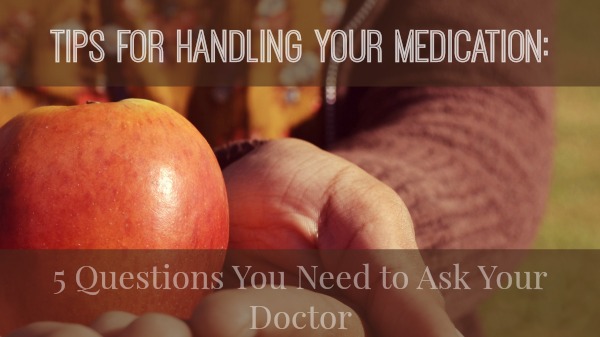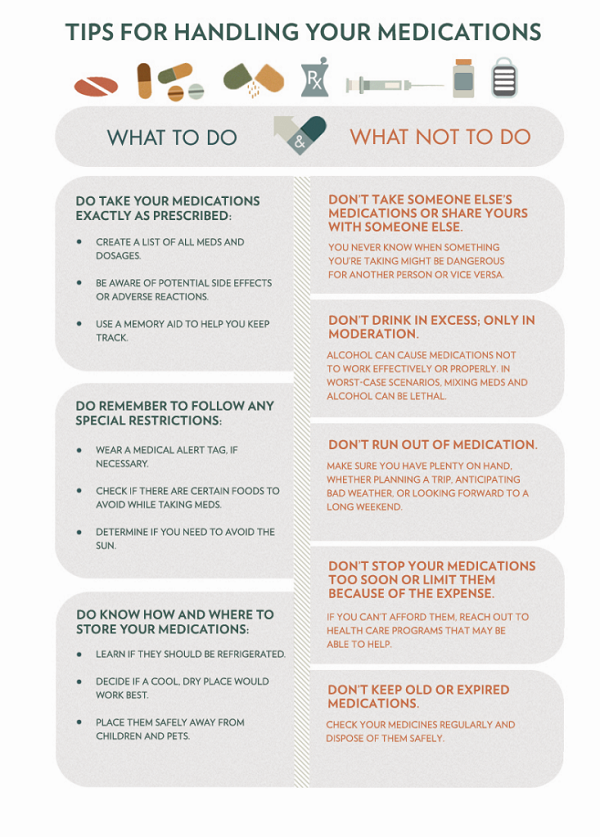You guys know that ‘m a big advocate of taking care of yourself and making sure that your healthcare needs are met. Most of the time when I talk about that, I speak in terms of breast care, working out, or just taking time to be alone. One of the areas of self care that is just as important is ensuring that you are taking any and all medications as prescribed.
I have to admit, there’ve been times when I’ve been negligent when reading the directions on headache medicine or cold medicine because I assume that I’ve taken it before, so I can take it the exact same way again. Not true. All medicines are different and they all interact with each other {and with your bodily} differently.
April 7th is World Health Day and I was asked to share my tips for how to handle medication safely. Although I’m not a healthcare professional, I am an advocate for women’s health, which is why I agreed to write this post.
Whether we’re talking about prescription medicines or over-the-counter medications, there are several basic questions you need to ask your doctor or pharmacist before going home:
1. How often do I need to take this?
Some medications need to be spaced apart in order to maintain their effectiveness, keep the dosage level, or prevent possible overdose. It’s important to know if medication needs to be taken every hour, four hours, or twelve hours.
2. Are there any foods or other medications that made impact the effectiveness of the drug?
Grapefruit is one of those foods that tends to interact negatively with many medications. You’ll want to check with your doctor or pharmacist to see if there are any other foods or juices you should avoid while taking your medication.
3. Where should I store my medication?
Some medications need to be refrigerated, while others can be stored in a cabinet. Either way, ALL medications need to be kept out of reach of little hands.
4. What should I do if there’s an accidental overdose?
Sometimes accidents happen and there may be an overdose, make sure you know how to act quickly to avoid permanent injury or death.
5. Are there any possible side effects?
All medications have side effects, some are worse than others. Make sure you talk to your doctor to find out if there are activities you should avoid such as driving or operating heavy machinery.
You can also sign up to receive Patient Safety Alerts by clicking here. This handy tool will send you real-time recall and safety alerts according to the type of prescription drug or medical device you use!
Check out the infographic below for more tips on how to safely handle medications:
Do you feel rushed during your exams? How do you ensure that all of your questions get answered?



